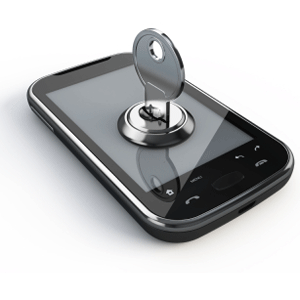 NEWS
NEWS
 NEWS
NEWS
 NEWS
NEWS
![]() As the popularity of high-tech mobile devices, more employees prefer to work on their own laptops, tablets and smartphones. This trend is now adopted globally and irreversible, but faces new risks.
As the popularity of high-tech mobile devices, more employees prefer to work on their own laptops, tablets and smartphones. This trend is now adopted globally and irreversible, but faces new risks.
A recent report commissioned by Trend Micro found that nearly half of enterprises that allow BYOD to connect to a company’s network have experienced a data breach.
Security Still a Concern
The report surveyed in the U.S., U.K., and Germany among IT executives and CEOs of larger companies focused mobile security and issues related to BYOD programs. Most of the companies suggested embracing data access rights (45 percent) or installing security software (43 percent).
Many of the IT professionals believe in this survey that BYOD programs introduce security breaches and risks to environment. Almost half of those companies (46.7 percent) experienced a security breach where employees accessing corporate systems and information.
In the other survey conducted by San Francisco-based mobile app security provider Appthority found that top targeted app categories on the Android and iOS platform are more prone to security breaches.
Another report from Juniper Networks Mobile Threat Center has identified 8,608 new mobile malware samples in the first three months of 2012.
In most cases, security on the corporate mobile environment has to deal with a heterogeneous composition of devices, which, in turn, are stored as uncontrolled personal data of the owner, and business applications.
Among those who experienced security breach, nearly 44.9 percent responded by putting restriction on the data and resources while a similar number (42 percent) implemented mobile security tools on employees devices. Moreover, 12 percent of respondents said that they shut down BYOD programs completely following a security breach.
“Companies that are questioning whether or not to allow workers to bring personal devices into the workplace should just stop asking: It’s clear that you can get a competitive edge when you put the right precautions in place,” Cesare Garlati, vice president of mobile security at Trend Micro, said in a statement.
BYOD Increases Productivity
According to Garlati, execution of BYOD programs can provide competitive advantages to companies as it enhances productivity, creativity and innovation in the workplace, while reducing the costs.
Seventy percent of the respondents said that improved productivity is the main key reason for them behind embracing of BYOD consumerization programs.
“The key to not being overwhelmed by this trend is that all these devices need to be secured by implementing the proper BYOD policies and procedures,” he said.
If companies want to take full advantage of BYOD, they will have to adopt a solution for managing mobile devices (Mobile Device Management) enabling them to automate and secure management of devices and networks. Good MDM solution will not only enable the company to adopt BYOD successfully, but also increase operational efficiency and reduce the tensions which are subjected to IT departments.
The BYOD is here to stay; companies must react quickly and solve their security problems in order to reap the benefits.
THANK YOU